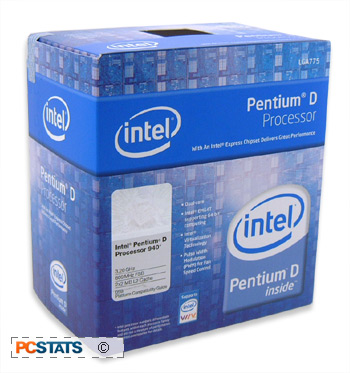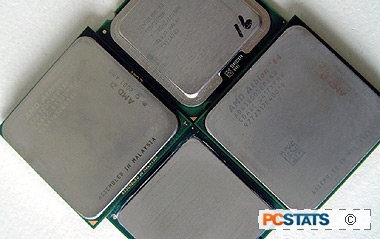For the longest time chipsets from Intel
were the companies "ace up its sleeve." No other processor manufacturer could match Intel's performance or stability
in the area of desktop motherboards and core logic. It was one of the primary reasons why
AMD has had a very difficult time upsetting Chipzilla.
 It probably
wasn't the best move on AMD's part to state that it would never get into the
chipset market, after all it does not have the expertise to devote to this area, and a
processor without a good chipset isn't much. Relying upon companies such as VIA, ULI, and SIS to come
up with really powerful core logic has been hit and miss... at least that was the
case until graphics giant nVidia came into the game.
It probably
wasn't the best move on AMD's part to state that it would never get into the
chipset market, after all it does not have the expertise to devote to this area, and a
processor without a good chipset isn't much. Relying upon companies such as VIA, ULI, and SIS to come
up with really powerful core logic has been hit and miss... at least that was the
case until graphics giant nVidia came into the game.
The emergence of nVIDIA as a chipset power house is exactly what AMD needed, and now the Athlon64 has a legitimate partner that has an excellent track record in both performance and stability. I think persistence of the nForce 4 chipsets will continue to thrust AMD based computers against Intel strongholds (such as the workstation PC) like rain in the middle of a monsoon. With great chipsets, and a very capable processor there's little Intel can do to stand up to a better chip.
The only question that I'm left dwelling on is the
little stickler of nVIDIA also producing Intel chipsets; will the
company devote more resources here at the expense of its K8 solutions?
Considering how much market share Intel has, and in corporate terms it is
monumental, it would be beneficial for nVIDIA to try and increase its stake in Intel based systems more than promote AMD. I think AMD offers a better desktop processor right now, and is just breaching the hill on the server processor front with its Opteron CPUs. Time will tell, and as VIA seems to be the lame duck in this race for the last year and a bit, there doesn't seem to be much on the horizon pre-positioned to upset nVidia's apparent dominance.
As anyone weighing the pros and cons of AMD vs. Intel computers will tell you, it's
dangerous to depend on what-ifs. It's dangerous for AMD to
depend so significantly upon a single significant third party chipset manufacturer for
the majority of motherboards in demand, and it really needs to
even things out with the other core logic vendors. AMD may not be interested in chipsets, but you've got to wonder why it keeps holding out when just about every company and its uncle is vying for space in the chipset biz - ATI, ULI, nVidia, SIS, VIA, Intel, etc.
Step 5: Twice the Number of Cores, Add Another 32-bits for
64
Dual core
processors are another area where AMD wins hand down with respect
to performance I think, but on the flip side Intel sure busts out the
most prevalent marketing. There is little doubt that AMD's Athlon64 X2
series of processors is superior to the Intel Pentium D in virtually every which
way. Although, I'm compelled to acknowledge that no dual core processor is going to ruffle any feathers versus the single core alternative unless the software or game is specifically coded for symmetric multiprocessing (SMP) - both AMD and Intel somehow forget to mention that so very often. Anyhow, the biggest stumbling block with the dual core Intel Pentium D (aside from heat) is that both cores are starved of memory bandwidth.

Let's look back into the crystal ball of tech-time and mull over how all this came to be.... You'll recall that with Netburst on life support, the Intel Pentium D's sudden introduction reeked of a band-aid fix, at best. Slapping two Pentium 4 cores together into one slab of silicon is a bad idea; the architecture isn't designed to handle two bandwidth hungry cores. It just... isn't.
Here's an example of what I mean. Consider if you will that an Intel Pentium 4 CPU running on an 800 MHz Front Side Bus (FSB) requires 6.4GB/s of bandwidth. Therefore an Intel Pentium D with two CPU cores requires 12.8GB/s memory bandwidth. The dual channel memory controller within the Intel 945P chipset (not to mention the 955X, 975X, nForce4 SLI Intel Edition, etc) only provides between 50% to perhaps 66% of this. The rest is simple math; without sufficient bandwidth, the processor has to pause, if however momentarily. It's almost as bad as the i845+SDRAM days of the socket 478 Intel Pentium 4. Shudder the thought.
AMD's Athlon64 X2 processor suffers from a memory bandwidth crunch
too, yet its dual cores do not rely as heavily upon pure memory bandwidth. Rather, the Athlon64 X2 reacts to a mix of tight CAS Latency memory timings and memory bandwidth. This is why on AMD systems, loosening up the memory timings to increase memory frequency may actually have a negative effect on overall performance of the system.
Despite this technical advantage, I think Intel has
walked away with dual core processor sales because it has a
better marketing team. Marketing has always seemed to be AMD's achilles heel. Whenever I walk into a large electronics store I always see oodles of Intel Pentium D paraphernalia everywhere. Enthusiasts might discount TV advertising, but hey if you've got Frodo shilling that new Core Duo you're going to be swayed on some level. "AMD Me" by comparison is a pretty flat call to arms.
